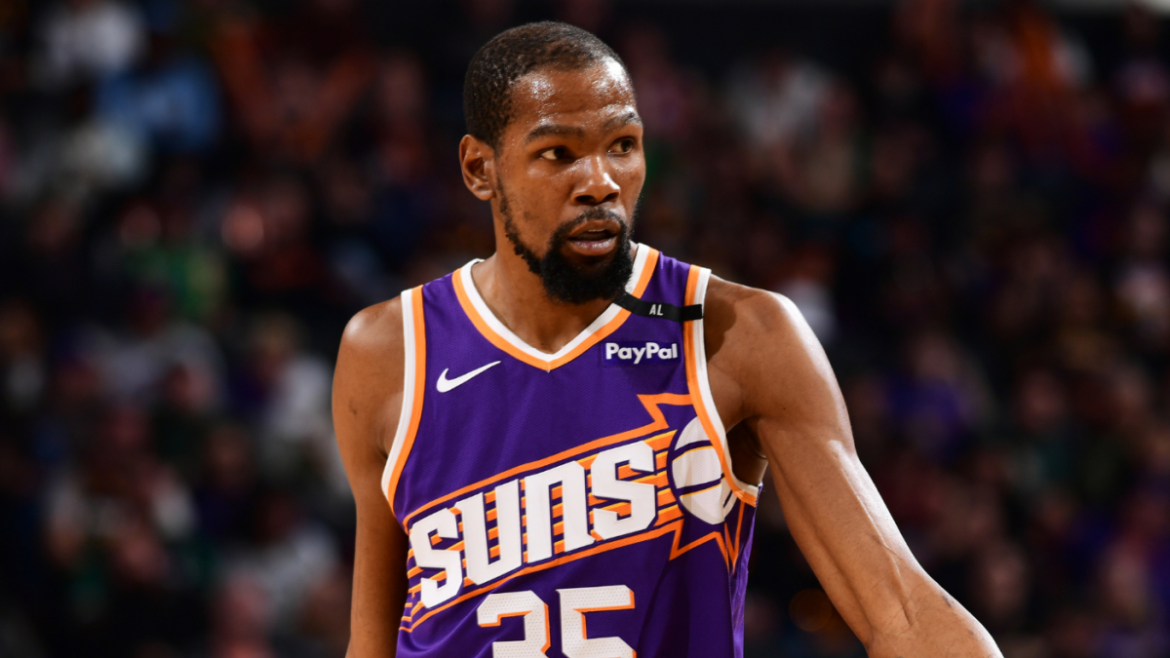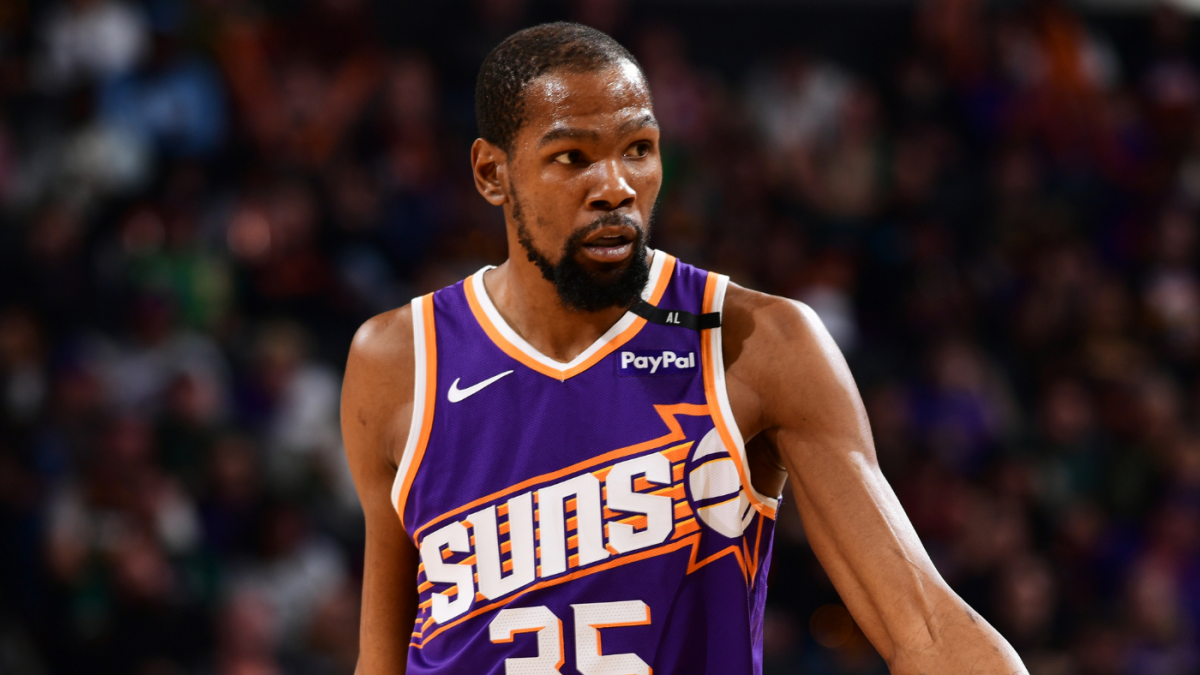Kevin Durant’s Trade Scenario: Preferred Destinations, Challenges, and Implications
The NBA off-season buzz centers heavily on the future of Kevin Durant, the 15-time NBA All-Star whose towering presence continues to reshape team strategies and league dynamics. Having spent the past two and a half seasons with the Phoenix Suns and holding one year left on his current $54.7 million contract, Durant is poised for a trade that could significantly alter the balance of power in the league. Various reports, especially from ESPN insider Shams Charania and other NBA insiders, reveal Durant’s three preferred trade destinations: the Miami Heat, San Antonio Spurs, and Houston Rockets. Yet, the situation is layered with complexities surrounding team negotiations, Durant’s long-term commitments, and the Suns’ trade demands.
—
The Trio of Preferred Destinations: Why Heat, Spurs, and Rockets?
Durant’s selection of the Miami Heat, San Antonio Spurs, and Houston Rockets as his favored trade destinations offers insight into both his playing preferences and strategic vision for his career’s twilight phase.
The Heat have emerged as a competitive Eastern Conference team with a solid nucleus built around Jimmy Butler and Bam Adebayo. Durant sees Miami as a viable contender where he would be willing to commit long term. The Heat’s culture of tough defense, professionalism, and cohesive team play could fit Durant’s aspirations for sustained success while allowing him to leverage his offensive prowess.
The Spurs represent a unique blend of youth and potential, notably with the emergence of Victor Wembanyama, a generational talent, and De’Aaron Fox, a dynamic playmaker. Pairing Durant with these rising stars offers an enticing Western Conference challengers’ profile. Reports suggest that Durant believes the Spurs have a high ceiling with the right veteran leadership. The Spurs, aiming to re-enter the playoff picture, see Durant as a catalyst to accelerate their rebuild into a championship contender.
Houston offers a blend of trade flexibility and rebuilding assets. With a strong scoring need and several young players, the Rockets could center their future around Durant, who would also be willing to make a long-term commitment. The Rockets, who have shown patience in their rebuild, can offer Durant a leading role and the opportunity to shape the team’s trajectory.
—
Contractual Nuances and the Sun’s Negotiation Stance
Durant’s contract situation significantly influences trade dynamics. With only one year left on his deal, he holds leverage through the maximum $122 million two-year extension he can sign if traded to a preferred destination. This extension is critical as it gives Durant both financial security and stability in selecting his next team.
However, the Phoenix Suns, Durant’s current team, have made it clear they intend to secure maximum value from any trade, potentially limiting their ability to accommodate Durant’s wishes. Reports indicate the Suns may reject trades that do not meet their valuation, regardless of Durant’s preferred destinations. This stance introduces tension between the player’s preferences and the Suns’ business strategy.
—
Trade Obstacles and Broader Market Interest
While Miami, San Antonio, and Houston top Durant’s list, several other franchises have demonstrated interest, including the Minnesota Timberwolves and New York Knicks. Durant’s high value makes him a coveted player across the league, complicating trade negotiations. Additionally, certain complicating factors reside in each targeted franchise:
– San Antonio Spurs: Although Durant prefers the Spurs, the team must navigate the cost of parting with promising young assets like Devin Vassell or Keldon Johnson while balancing salary cap constraints.
– Houston Rockets: The Rockets’ package capacity in terms of draft picks and young talent will be critical to crafting an attractive offer for the Suns.
– Miami Heat: The Heat’s ability to match the Suns’ trade demands and maintain roster balance amid their cap situation is uncertain.
Each destination comes with risk-reward calculations, with trade talks characterized by a delicate interplay of matching team needs, salary cap considerations, and player preferences.
—
Kevin Durant’s Potential Impact on Destination Teams
Durant’s arrival at any of the three preferred destinations would transform the competitive landscape significantly.
– Miami Heat: Durant could slot alongside Butler and Adebayo to create a multifaceted offensive and defensive team capable of contesting for the Eastern Conference crown. His scoring, playmaking, and veteran leadership would elevate Miami’s title chances instantly.
– San Antonio Spurs: Durant would not only provide scoring and veteran leadership but also integrate with an exciting young core poised to ascend. The Spurs’ rebuild could accelerate markedly, establishing them as a heavyweight in the Western Conference sooner than anticipated.
– Houston Rockets: With Durant anchoring the offense, the Rockets could transition from a rebuilding phase to a playoff contender. His presence would provide mentorship to younger players and boost Houston’s capacity to attract additional free agents.
—
The Uncertain Future: Balancing Durant’s Preferences and Suns’ Strategy
Despite being clear about his preferred teams, Durant faces a scenario where his desires may not align perfectly with the Suns’ negotiation priorities. Trade talks could involve teams not on his top list, which may affect his willingness to commit long term post-trade. This uncertainty adds to the intrigue of the offseason, as the Suns weigh the optimal return for their star asset against Durant’s contractual leverage.
Moreover, the possibility remains that Durant elects free agency next summer if traded to an undesirable destination, giving teams pause in offering full trade value. This nuance escalates the complexity for both Durant’s camp and the Suns’ front office.
—
Conclusion: A Pivotal Moment in Durant’s Career and NBA Landscape
Kevin Durant’s trade saga stands as one of the most compelling narratives of the NBA offseason, merging player agency, team rebuilding strategies, and the business of sport into a high-stakes negotiation. His preference for the Miami Heat, San Antonio Spurs, and Houston Rockets reflects a blend of competitive ambition and long-term commitment considerations. Yet, the interplay of the Suns’ trade demands, market interest, and salary constraints underscores the delicate balance of power in NBA transactions.
Wherever Durant lands, his influence will ripple across the league—positioning his new team as an immediate contender and reshaping the competitive calculus for the 2025-26 season and beyond. The coming weeks promise to reveal whether Durant’s wishes align with the Suns’ vision, setting the stage for a new chapter in the legendary scorer’s storied career.





